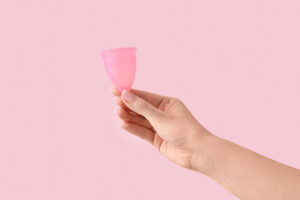The healthy diet you consume affects every part of your body, including your vagina.
When it comes to other parts of your body, you know what to eat: You consume lean proteins when you need extra energy, healthy fats for your hair, skin, and nails, and whole grains to keep you full and running smoothly.
But which foods promote vaginal health? You might be surprised to learn that your diet can keep your lady bits in good condition by easing cramps, treating infections, and preventing dryness. On the other hand, too much of some foods can make you feel uncomfortable beneath the belt, so you should limit their intake as much as possible.
Here are the best foods for your vagina:
Plain Yogurt : Your vagina’s pH can be influenced by everything from exercise to stress to sex, but a healthy vagina maintains its pH balance by itself.
It’s important to keep vaginal pH stable. In the event of a vaginal pH shift, the vagina becomes a more favorable environment for bacteria and other organisms to grow, resulting in yeast infections and especially Bacterial Vaginosis. This is where yogurt’s nutritional power shines through. It contains live bacteria culture, making it a great source of probiotic bacteria. Several bacteria found in the Lactobacillus Acidophilus strains could aid in keeping the vaginal pH in an acidic range, decreasing the chance of yeast and other types of infection.
Concentrated Cranberry Juice: Cranberries have long been believed to prevent urinary tract infections. They are beneficial to your vaginal health. It balances the vaginal pH level while its acidic properties help fight bacteria that cause UTIs, vaginal infections, and other problems. Drink unsweetened, organic cranberry juice regularly to reap the benefits.
Water: Hydration helps increase energy and circulation, as well as improve your lady bits. When it comes to vaginal dryness, women should drink six to eight 8-ounce glasses of H2O a day.
In the same way that dehydration can leave your face or hands feeling parched, skipping water might leave the skin on your vulva (the external parts of your genitalia) feeling dry or itchy(Avoid scratching that itch, as you might make yourself more susceptible to infection). Stay hydrated instead. Additionally, drinking enough water is a simple way to prevent UTIs. That much liquid means you’ll have to pee a lot, which helps flush out bacteria before they can create an infection.
Ginger: Ginger is well-known for its anti-inflammatory properties, so it may work to quell cramps similarly. It relieves painful period cramps and nausea. It also helps reduce blood pressure levels and increase blood flow, which could enhance arousal and sexual function in both men and women. It also removes odor and dries up Virginia discharge.
Soy: It helps with vaginal dryness and benefits skin and blood vessel health in postmenopausal women. It helps in reducing estrogen levels. There are many different reasons for decreased estrogen levels in the body, from medications to menopause, but one of the symptoms is vaginal dryness.
Regular intake of soy can help reduce vaginal dryness.




